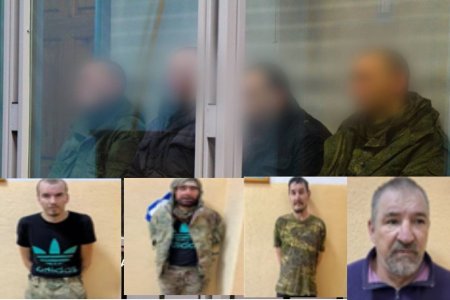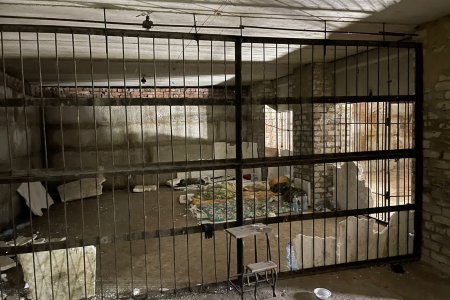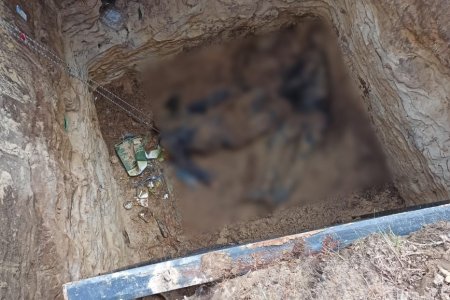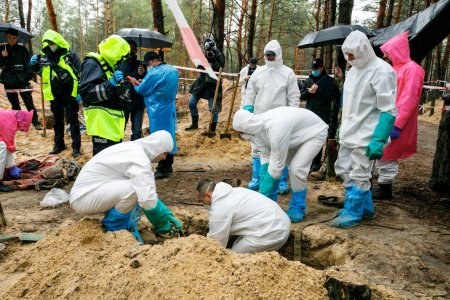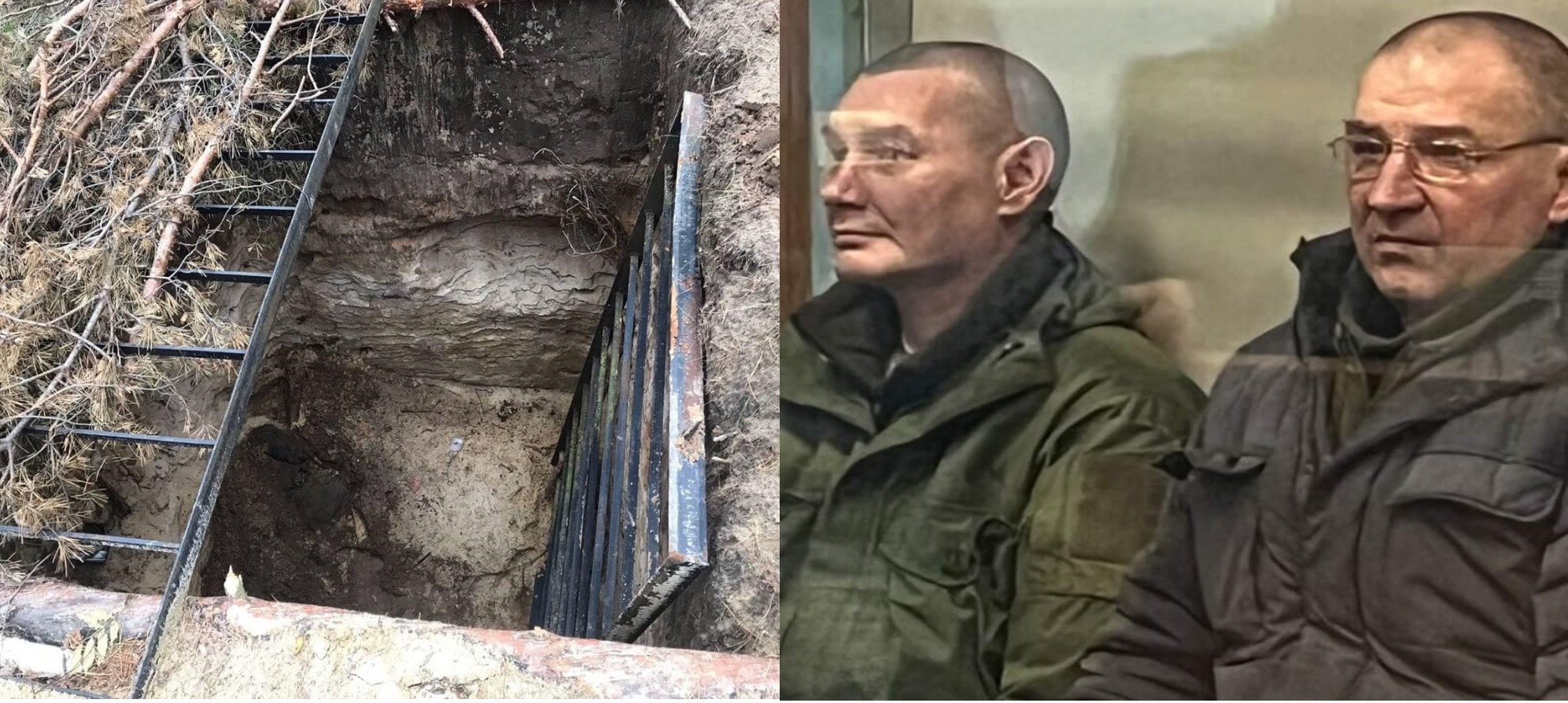
A court in Ukraine has sentenced Belarusian national Maksym Ziaziulchyk to ten years’ imprisonment for fighting against Ukraine as a mercenary in the so-called ‘Redut [or Redoubt] private military company’. The 22-year-old is, reportedly, the only person to have been sentenced specifically as a mercenary, however two Russians from ‘Redut’ recently received long sentences in Ukraine for war crimes committed in Kharkiv oblast. One would hope that these trials have been followed in Finland since this ‘private military company’, while probably controlled by Russia’s defence ministry, is believed to be owned and, presumably, funded by Gennady Timchenko, a Russian, with links to the Kremlin and Finnish citizenship.
According to the verdict, Ziaziulchyk was convicted by the Shevchenkivsk District Court in Kyiv on 18 January 2023 of taking part in military conflict in Ukraine as a mercenary (Article 447 § 4 of Ukraine’s Criminal Code). Ziaziulchuk admitted the charges and said he repented of his actions, with this noted in the verdict as constituting an extenuating circumstance. He was, nonetheless, sentenced to ten years, the maximum envisaged on this charge. The 22-year-old had previously been in the Belarusian army, in a KGB special forces unit, and stated in court that he had learned of the ‘recruitment’ of mercenaries for Redut from the commander of his military unit. He had travelled to Tambov in Russia to sign the relevant contract, with the amount offered – 3,400 US dollars a month and insurance – large by both Russian and Belarusian standards. Even if, as recently reported, Redut is linked with and / or under the control of Russia’s defence ministry, somebody very rich is doubtless footing the bill for these mercenaries.
Ziaziulchyk was taken on as a machine gunner and sent on 21 July 2022 to Izium in Kharkiv oblast which was then under Russian occupation. He received two injuries, with the second of these, he said in court, having been inflicted by the commander of his unit on 19 September, the same day that he was taken prisoner.
The sentences against four Russians, two of them from the ‘Redut private military company’ were reported in late December, but without the men’s names and with details given only about the war crimes the men were charged with (under the relevant Article 438 of Ukraine’s Criminal Code, as well as Article 28 § 2 - crimes committed as a group by prior conspiracy).
More details were provided, however, by Court Reporter, whose correspondent attended the passing of verdict on 23 December 2022 at the Kobelevskiy District Court in Poltava oblast. The men admitted to having been members of a Russian sabotage and intelligence group instructed to abduct and physically eliminate ATO veterans (soldiers who had fought in the Anti-Terrorist Operation, i.e. the military conflict in Donbas from 2014.)
The two Redut mercenaries were Ruslan Kolesnikov (b. 1968) and Mikhail Ivanov (b. 1977), a grenadier. Together with two GRU soldiers Maksym Volvak (b. 1992) and Valentin Bich (b. 1980), they were convicted of abducting and torturing three ATO veterans from the urban settlement Borova in Kharkiv oblast at the beginning of September.
It was stressed in court that the ATO veterans had not served in Ukraine’s Armed Forces for seven years and were, undoubtedly, civilians who are protected by the Geneva Convention on the Protection of Civilians in Wartime. Despite this, they had been abducted, held with bags over their heads and with hands bound. They were repeatedly interrogated to try to force them to identify other ATO veterans. Their captors used hammers to beat them around the limbs and threatened to cut off their fingers. All three victims were thrown into a deep pit and held prisoner there for three days, without food and water. The Kharkiv Regional Police reported early in October that at least one other ATO veteran, Serhiy Avdeev, was tortured in the same pit and died of his injuries, and two other bodies were found, with torture marks.
The four defendants were accused of having obeyed the [criminal] commands of a Russian known by the nom de guerre ‘Amur’. It was the latter who had named the three ATO veterans and ordered their abduction. The four men, who did not deny the charges, were sentenced to 11 years’ imprisonment.
The prosecution concentrated in Kolesnikov and Ivanov’s case on their war crimes, without charging them with being mercenaries. It is, however, worth stressing that it is illegal to be a mercenary both according to Ukrainian legislation and, at least in theory, according to Russian law. The only time Russia remembers this, however, is where men are accused of having fought for Ukraine. The defendants made it clear during the trial that both the two GRU officers and the two Redut mercenaries had been members of the same 16th separate special forces [spetsnaz] brigade. Court Reporter notes that the judge specifically asked Kolesnikov to explain their position. The latter stated that ‘Redut’ had been created as part of the 16th brigade.
It was clear back in 2014 that fighters from the Wagner ‘private military company’ [pmc] were working in close collaboration with Russia’s defence ministry. If that has now changed, this is only because of internal conflict and the power aspirations of ‘Wagner’s founder, Yevgeny Prigozhin. ‘Redut’ mercenaries have been engaged in Russia’s war against Ukraine, at least since the full-scale invasion in February 2022. They were actively deployed, together with the 16th brigade, in Russia’s invasion and occupation of parts of Kharkiv oblast, as well as in Kyiv, Donetsk and Luhansk oblasts.
Since 2014, Moscow has pushed the line that any Russians found fighting in Ukraine were ‘volunteers’, who had ‘taken leave without pay’ or ‘resigned’ from the military, and had not been paid. Such nonsense has become harder to justify when Prigozhin and others are openly advertising the pay they offer to men willing to take part in invading another country’s territory and in killing and torturing its citizens. They are still persistently called ‘volunteers’ in Russian Newspeak, with questions about who is behind the funding avoided. ‘Redut’, reportedly arose as a persecution security outfit for Timchenko’s natural resources companies, and Prigozhin is not concealing his creation and role in funding the Wagner pmc. Both Prigozhin and Timchenko owe their vast wealth to their close ties with the Kremlin and Russian leader Vladimir Putin. All of those, like Timchenko, who were first placed under international sanctions in 2014, for their role in Russia’s aggression against Ukraine, have, almost certainly, been rewarded with lucrative state contracts, etc. within Russia.
Two of these oligarchs, Gennady Timchenko and Boris Rotenberg, both have Finnish citizenship. In Timchenko’s case, this was received back in 1998, earlier than he should have been entitled to it. In an article entitled “Redut Russian mercenaries controlled by a Finnish citizen”, Finnish journalist Petri Mäkelä drew attention to legitimate concerns about how Timchenko managed to obtain his citizenship. He writes that the question of how “a Russian, with known affiliations with the Russian security services and political apparatus like Timchenko” should have passed the requisite security check conducted by SUPO has been raised from time to time over the past 20 years. Unfortunately, it never gained a clear answer, probably because it also failed to receive any great coverage by the mainstream media.
Mäkelä notes that a Finnish investigative journalist, Jarno Liski, has been probing and has “discovered some eyebrow raising details about the case and other connections to the central figure, working in the Finnish administration”, namely Matti Saarelainen. The implications, if these allegations are true, both of collaboration by a high-ranking Finnish civil servant with Russia’s foreign intelligence service and of others with political power being implicated (since Saarelainen kept being moved sideways, not dismissed), are deeply worrying. As he notes, “in any future conflict between Russia and Finland, Russia could be employing its private special force, owned by a Finnish citizen and directed by deeply rooted Russian foreign intelligence connections against critical points in the Finnish defence and government.”
The Finnish authorities have, he adds, revived a review of the situation, as of 17 January 2023, and a report on 3 February suggested that an investigation is now to be launched into the Finnish citizenship of both Timchenko and Rotenberg. It seems seriously belated.
